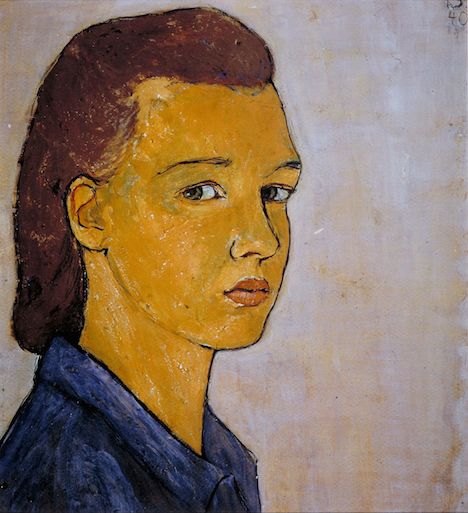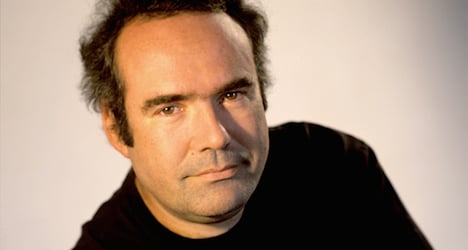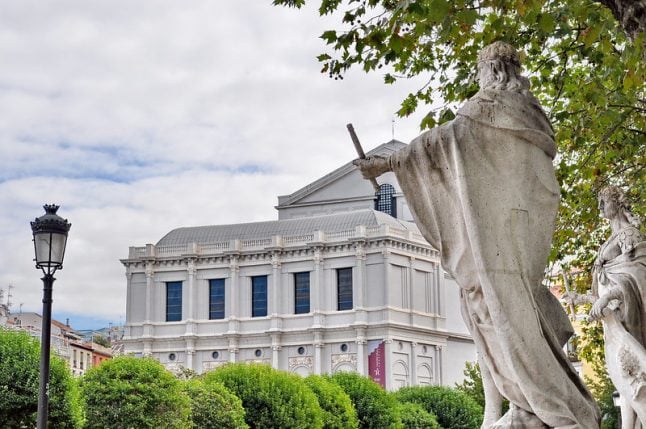Salomon's short life is depicted in hundreds of paintings she did while in exile in the south of France before she was deported and killed by the Nazis in Auschwitz in 1943, aged just 26.
Now her paintings — with subjects ranging from Berlin society dinners to the Nazis' power grab and the resulting Jewish exodus — have been given new life on the stage.
"Charlotte Salomon," created by French composer Marc-André Dalbavie and directed by acclaimed Swiss director Luc Bondy, will have its world premiere on Monday.
Translating her artwork into music was almost self-evident, says Dalbavie, who will also conduct the opera in Salzburg.
"Charlotte Salomon's whole artistic work began with music. She always sang when she painted and it's this singing that inspired her painting. So there is a very strong relationship between the singing, the painting and her story," he told AFP.
Music by Georges Bizet and Johann Sebastian Bach and even nursery rhymes that were referenced in the paintings dip in and out of Dalbavie's modern score.
Salomon's art often featured text and commentaries about events and these have also been incorporated into German writer Barbara Honigmann's libretto.
Not just a chronicle of political developments in Germany and France in the 1930s and 1940s, "Charlotte Salomon" follows a young woman's search for her identity and efforts to escape a family curse that had seen several of her relatives — including her mother and grandmother — kill themselves.
"She creates these works to rebuild her identity and also to save herself… she doesn't want to kill herself, she wants to live," said the 53-year-old Dalbavie.
"These works are really what will allow her eventually to free herself from her family."
That she is then deported precisely as she finds a will to live "is a very dramatic irony," he added.

Self portrait by Charlotte Salomon. Photo: Jewish Historical Museum, Amsterdam.
'Opera isn't funny'
Salomon's collection of paintings, entitled "Life? or Theatre?", is now kept at the Jewish Historical Museum in Amsterdam.
Using this expressive artwork as a projected backdrop, the opera is performed with two Charlottes — mezzo soprano Marianne Crebassa singing in French and actress Johanna Wokalek narrating in German.
Set against Dalbavie's dramatic music, Salomon's mother and grandmother kill themselves, her father is taken away by faceless Nazi thugs in masks and Jews huddle while discussing whether to flee the coming apocalypse.
In the background, Salomon's paintings show a swastika, marching troops and ships in the night that will take those fleeing to safety.
But she also discovers love and art and her paintings once in southern France are filled with warm colours — a challenging mood to render in an opera, director Bondy told AFP.
"Her fictional biography has a very cheerful side, it's sometimes melancholy… That's very difficult to convey in an opera, because opera isn't really something that's funny," he said.
"There are a lot of serious aspects but I think you can also see a cheeky side in this Charlotte," he added.
"It's a story that captures the heart and makes you think."
Commissioned specially for the Salzburg Festival, which chose "war" as this year's theme in honour of the 100th anniversary of the start of World War I, "Charlotte Salomon" is Dalbavie's second opera after "Gesualdo" in 2010.
"I find myself at a festival that is best known for performing the great classical pieces, especially Mozart, Richard Strauss and the great German repertoire," he admitted ahead of the premiere at Salzburg's imposing Felsenreitschule theatre, which is carved into a rock.
"Now here comes a French piece, with French singers. It's a bit new for them. We'll see how the public will react," he said with a smile.



 Please whitelist us to continue reading.
Please whitelist us to continue reading.
Member comments